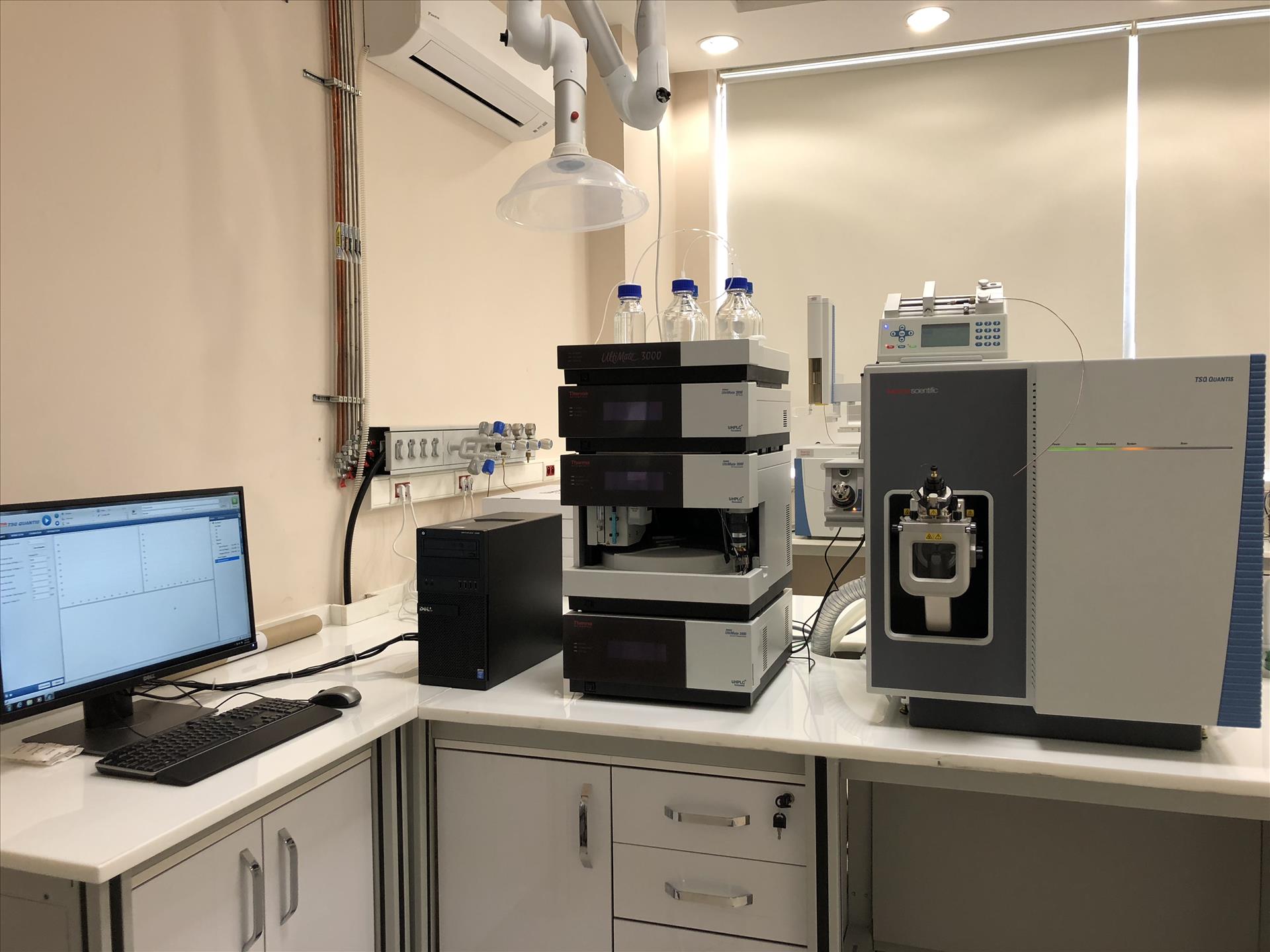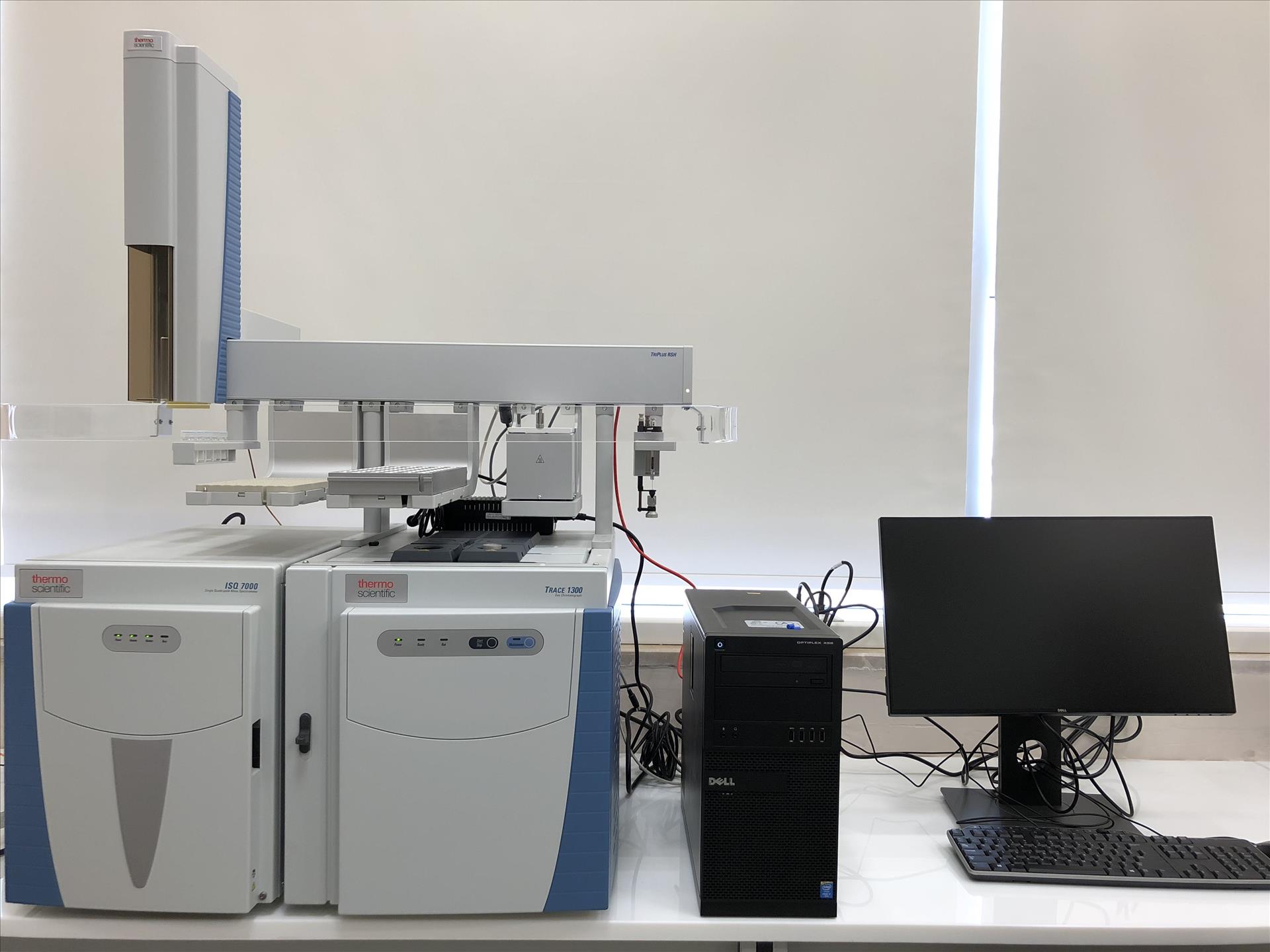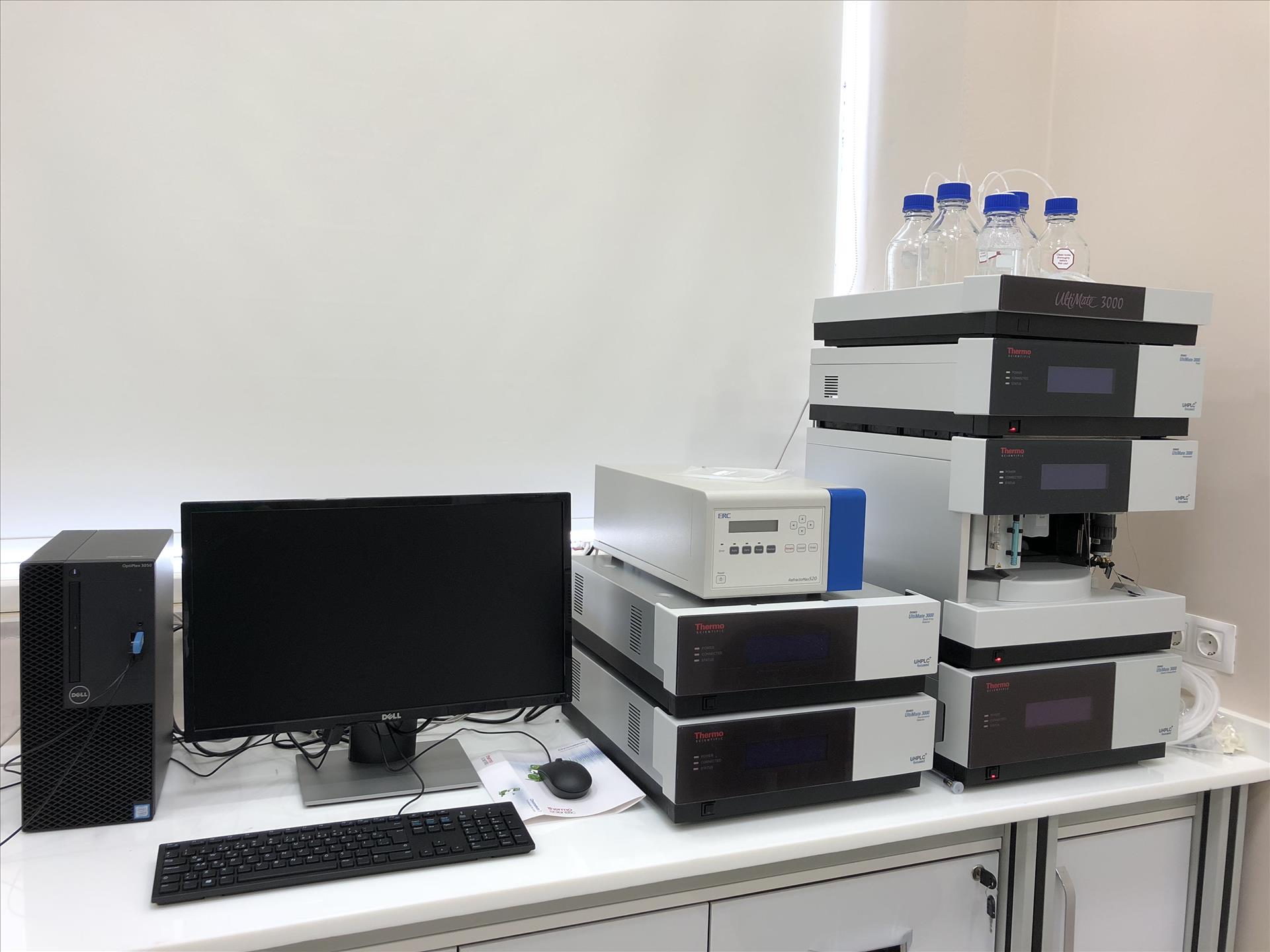LIQUID CHROMATOGRAPHY-MASS SPECTROSCOPY (LC-MS/MS)
Liquid chromatography-mass spectrometry/mass spectrometry (LC-MS/MS) is an analytical chemistry technique that combines the mass separation capabilities of liquid chromatography (HPLC) mass spectrometry (MS) with the physical separation capabilities. Matched chromatography - MS systems are popular in chemical analysis because the individual capabilities of each technique are synergistically developed. Liquid chromatography separates the mixtures with multiple components, while mass spectrometry provides the structural identity of the individual components with high molecular specificity and detection sensitivity. The analytes separated from the LC unit are ionized and sent to the MS/MS unit. In the MS/MS unit, the ions are diverted from the first quadropole at the mass/charge (m/z) ratios and directed to the interference cell known as collision cell. Molecules collided with high purity nitrogen gas are disintegrated into the second quadropole. These second ions in the second quadropole unit are also mass-determined by mass/charge (m/z) ratios. While there may be many molecules with the same m/z ratio, the ratio of molecules with the same fragmentation ions is 1/10000. This tandem technique is preferred for precise analysis of biochemical, organic and inorganic compounds commonly found in complex samples of environmental and biological origin. Therefore, LC-MS/MS can be applied in a wide variety of sectors such as biotechnology, environmental monitoring, food processing and pharmaceutical, pesticide and cosmetics industries.
LC-MS/MS allows the analytes to be analyzed qualitatively and quantitatively. In the analysis of single or multiple analytes in complex environments, in the analysis of trace materials, in the analysis of impurities and metabolites as well as in the analysis of additives and pesticides in foods, analysis of biological samples such as blood, urine, tissue can be obtained with high precision and accuracy.
LC-MS/MS is one of the most sensitive methods for the determination of trace amounts of analytes in the sample as well as multiple analyte assays. It gives information about the amount, structure and molecular weight of the components in the sample. From small pharmaceutical compounds to the determination of large proteins, polar ionic, thermal unstable and non-volatile compounds have a wide range of use, such as analysis.
The present LC-MS/MS system consists of a mass spectrometer (MS/MS) consisting of a 1000 bar pressure operated liquid chromatography (LC) unit and a triple quadrupole system. The system includes ESI, electrospray ionization and APCI, atmospheric pressure chemical ionization ion sources, and thus a wider scale of analysis.
Device: Thermo TSQ Quantis LC-MS/MS
Scope of application:
- Drug metabolites analysis,
- Forensic Medicine analysis,
- Newborn screening in medicine,
- Veterinary drug residue analysis,
- Food pesticide analysis,
- Residue and pollution determination in water.

GAS CHROMATOGRAPHY-MASS SPECTROSCOPY (GC-MS)
Gas chromatography-mass spectrometry (GC-MS) is an analytical method that combines the properties of gas chromatography and mass spectrometry to identify different substances within a test sample. The contents of the samples which can be found in the gas phase or gasified by GC can be separated by mass and can be illuminated by advanced molecular determination. GC-MS applications include drug detection, fire research, environmental analysis, investigation of explosives, and identification of unknown samples, including material samples from the Mars planet during the drilling operations in the early 1970s. In addition, it can identify trace elements in materials that are thought to be more fragmented than previously described. The mass spectrometer also moves the method to the next level for quantitative (quantitative) illumination of the sample content after chromatographic separation. It provides analysis and detection even in small amounts of a substance, such as the liquid chromatography-mass spectrometer. GC-MS is therefore considered a "gold standard" for forensic substance identification because it is used to perform a 100% specific test that positively identifies the presence of a particular substance.
Our current GC system incorporates mass spectrometry (MS), flame ionization dedector (FID), SPME, headspace and liquid injection units. can perform qualitatively and quantitatively.
Device: ISQ QD
Scope of application:
- Petroleum, Petroleum Derivative and Petrochemical Analysis,
- Volatile or Semi-Volatile Substances,
- Food Samples,
- Oil Samples,
- Cosmetic Product Analysis,
- Determination of Doping Substances.

HIGH PERFORMANCE LIQUID CHROMATOGRAPHY (HPLC)
High performance liquid chromatography (formerly referred to as high pressure liquid chromatography) is a technique used in analytical chemistry for the separation, identification and quantification of each component in a mixture. The technique is based on the logic of advancing a pressure liquid solvent (mobile phase) containing a sample mixture from a column filled with a solid adsorbent (stationary phase) with high pressure. Each component in the sample is in molecular interaction with the adsorbent material. However, this interaction is different for each component. This causes different flow rates for the different components and leads to the separation of components as they flow out of the column. Depending on the sample analyzed, qualitative determinations of these components can be made with the ultraviolet (UV) detector, fluorescent detector and refractive index detector (RID) integrated with our existing system. In HPLC studies, quantitative determinations of the target components can also be made by calibrations prepared using standard substances. HPLC can now be adapted to different studies, be used for quantitative determinations, analytical separation of non-volatile and temperature-degradable samples. Due to the reasons, it is widely preferred and used in the sector.
Device: Thermo Ultimate 3000 HPLC (600 Bar)
Scope of application:
- Chemical Industry,
- Food Industry,
- Pharmaceutical Industry,
- Cosmetics Industry,
- Environmental Analysis,
- Biochemical Analysis,
- Cosmetics Industry,
- Clinical and Forensic Medical Studies.


